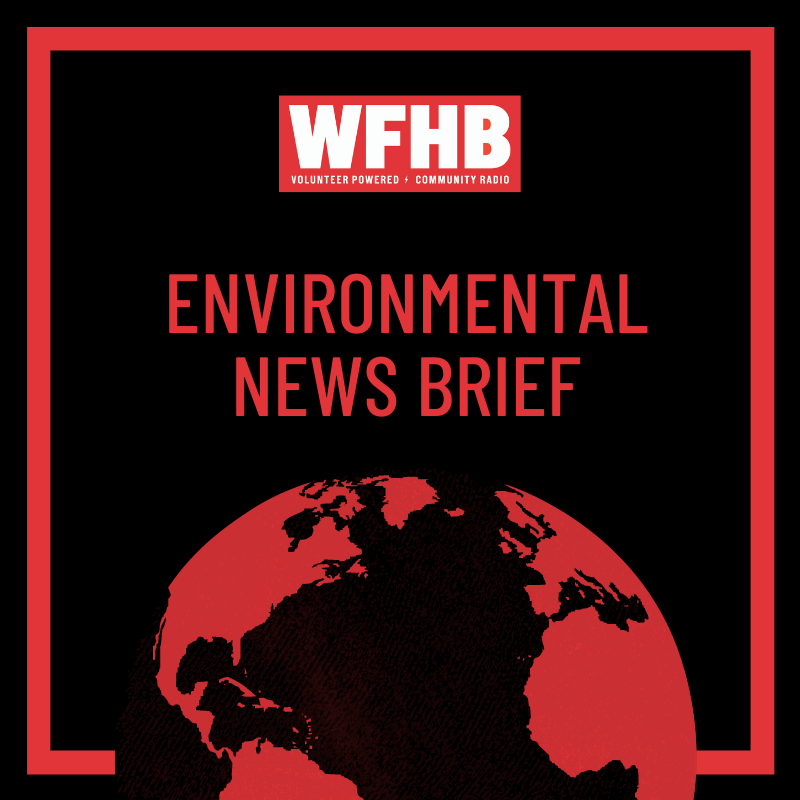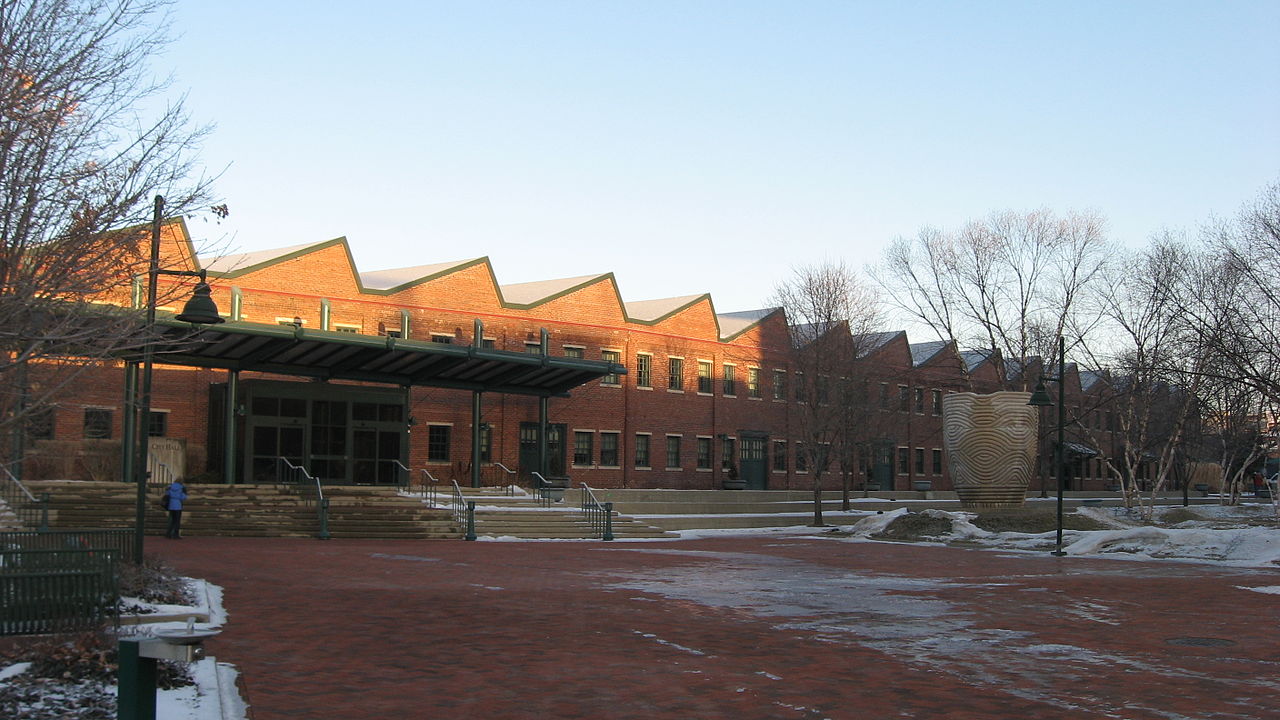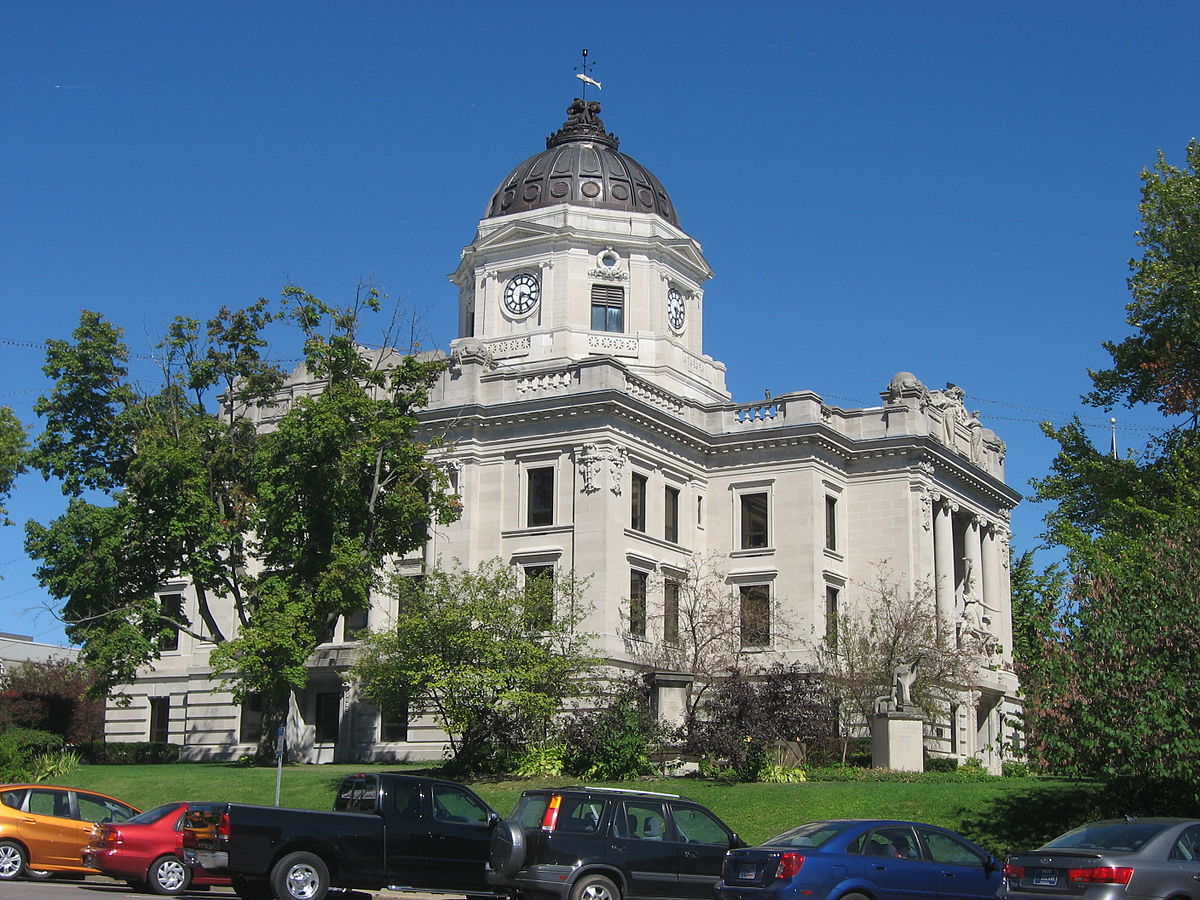Podcast: Play in new window | Download (Duration: 30:00 — 41.3MB)
Subscribe: RSS
This is the WFHB Local News for Wednesday December 22nd, 2021.
Later in the program, Covid-19 cases are on the rise across the state as Indiana reported its first positive case involving the Omicron variant. Also coming up in the next half hour, the Log4J Mess on Better Beware – your weekly consumer-watchdog segment on WFHB.
But first, your Environmental News Brief:

A recent study from the Indiana University Department of Geography has found that the burrow holes left behind by the cicadas that emerged last summer will help improve water quality in the local wildlife areas. The holes in the ground allow water to infiltrate the soil and help hydrate plants, which allow them to grow more and become stronger. This will eventually lead to cleaner water and less water runoff. This will be more of an occurrence in rural areas, as human activity has largely compacted the soil in the urban areas where the cicadas emerged.
West Virginia Senator Joe Manchin has decided not to vote in favor of President Joe Biden’s Build Back Better plan, resulting in the Senate Democrats not having the necessary 50 votes to allow the legislation to pass. With no hope in sight to save the legislation, it is likely that this will lead to devastating consequences in the efforts to combat climate change by not meeting the emission-cutting pledges under the Paris Agreement. A large portion of the legislation was meant to promote cleaner energy and help reduce pollution, key steps in the fight against climate change. Despite this setback, some members of Congress are optimistic for its future, including Massachusetts Senator Ed Markey, who hopes that the specifically environmental portions of the legislation take a new form in a different bill.
According to NASA, the most environmentally friendly Christmas tree is an actual tree from a tree farm. While many people may think that plastic trees end up being more beneficial to the environment, this is not the case. The amount of carbon dioxide that the real tree would take in and convert to oxygen in the 8 to 12 years on average it takes for a christmas tree to grow is more beneficial than a plastic tree. No matter how many years you reuse an artificial tree it will eventually be thrown away, and may take 1,000 years to decompose. Instead, many cities often collect Christmas trees to grind them up into mulch which helps more plants grow. If you want to be more environmentally friendly this holiday season, a real Christmas tree is the perfect addition to your holiday festivities.
Bloomington City Council Approved the Designation of the Reverend James Farris House as a Historic District

On December 15th at the Bloomington City Council meeting the council discussed designating the Reverend James Farris House as a historic district.
Historic Preservation Manager Gloria Colom Braña shared the significance of the house and the role Reverend Jame Farris played in Bloomington’s history.
President of the council Jim Sims supported the designation and wanted to ensure the documentation would be made available as official records moving forward.
The council voted unanimously to approve designating the Farris house as a historic district. The next city council meeting will be held on January 5th.
Update on the Bloomington Commission on Sustainability
At the Bloomington Commission on Sustainability meeting on December 14th the current president Jerrett Alexander announced he will be stepping down from his position on the committee and noted that there are vacancies that need to be filled.
Assistant Director of Sustainability, Lauren Clemens added that it looks like there will be five vacant positions and reminded residents to apply to the commission sooner rather than later. She said that officer elections normally take place in July, and proposed that they amend the bylaws to have the officer elections in February or March.
Clemens also reported that Confront the Climate Crisis reached out to the commission.
She said that she will bring up writing a letter of support for the Confront the Climate Crisis organization at the next meeting on January 11th, 2022.
Members of the Monroe County Council Discuss Financial Analysis

At the Monroe County Council meeting on December 14th the council heard a presentation from Financial Solutions Group on the sustainability of the revenue and spending plan.
President of FSG, Greg Guerrettaz shared a financial analysis with regards to Monroe County’s fiscal stability and the effect of possible annexation.
Council member Marty Hawk commented saying that the public safety fund will take a hit if the annexation takes place.
Guerrettaz shared that he thinks the budget might need to get tighter in 2023, and that there will be tough times moving forward.
Featured Reports:

Covid-19 cases are on the rise across the state as Indiana reported its first positive case involving the Omicron variant. We turn to Nicki Stewart-Ingersoll for an update on the local response to Covid-19.

Up next, The Log4J Mess on Better Beware – your weekly consumer-watchdog segment on WFHB. Host and producer Richard Fish says there’s a newly-discovered computer vulnerability that affects everyone, and everything. Fish provides basic information and the best ways to stay safe. We turn to Richard Fish for more.
Credits:
You’ve been listening to the WFHB Local News,
Today’s headlines were written by Noelle Herhusky-Schneider, in partnership with Cats – Community Access Television Services.
Today’s feature was produced by Nicki Stewart-Ingersoll.
Better Beware is produced by Richard Fish.
Our theme music is provided by Mark Bingham and the Social Climbers.
Engineer and Executive producer is Kade Young.
Anchors are Benedict Jones and Noelle Herhusky-Schneider.
 WFHB Bloomington Community Radio
WFHB Bloomington Community Radio


